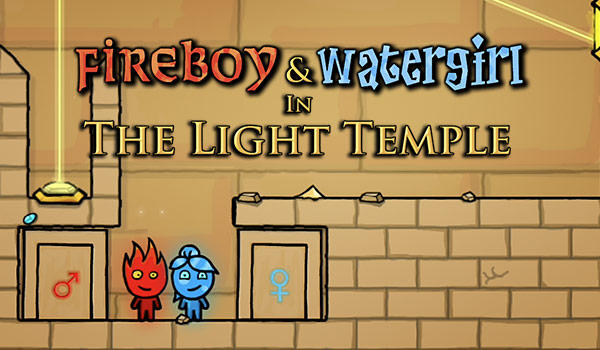"Dune: Awakening" is one of the most anticipated massively multiplayer online (MMO) games inspired by Frank Herbert’s legendary Dune universe. Developed by Funcom and published by Nacon, this survival MMO promises to deliver an immersive experience on the harsh desert planet Arrakis, combining open-world exploration, base-building, resource management, and faction warfare.
As fans of the Dune franchise await its release, the expectations surrounding Dune: Awakening are sky-high. This article explores the game’s development timeline, gameplay mechanics, narrative integration, and potential impact on the MMO genre. We’ll also examine the strengths and weaknesses of the game based on available information and early impressions.
1. Origins and Announcement of Dune: Awakening
The Legacy of Dune in Gaming
Frank Herbert’s Dune has influenced countless forms of media, including games like Dune II, the RTS classic that shaped real-time strategy gaming. Dune: Awakening is a continuation of this legacy, aiming to bring the desert world and its political intrigue to life in a new MMO format.
Announcement and Initial Hype
The game was officially announced in early 2022 by Funcom. The reveal showcased cinematic trailers emphasizing the brutal environment of Arrakis, spice harvesting, and large-scale combat. Early hype was fueled by the promise of an open-world MMO with survival mechanics blended with deep lore integration.
2. Setting and Storyline: Bringing Arrakis to Life
The Harsh World of Arrakis
Arrakis is a desert planet of immense value due to its spice production. Dune: Awakening sets players in this unforgiving landscape where survival depends on resource management, alliances, and controlling territory. The environment itself is a formidable opponent, with sandstorms, giant sandworms, and scarcity of water shaping gameplay.
Narrative Integration
Unlike many MMOs, Dune: Awakening incorporates key narrative elements from Herbert’s universe. Players choose factions—Fremen, House Atreides, or House Harkonnen—each with distinct goals and lore implications. This faction system adds depth, influencing player motivations and conflicts.
3. Gameplay Mechanics: Survival Meets MMO
Core Survival Elements
Survival is at the heart of Dune: Awakening. Players must manage hydration, temperature, and exposure to the environment. Collecting and refining spice adds an economic layer to survival, as spice is both a resource and a commodity that attracts attention from other players and NPC factions.
Base Building and Crafting
Players can construct bases and fortifications to protect themselves and their spice harvesters. Crafting plays a crucial role, with players gathering materials to build weapons, armor, vehicles, and infrastructure, fostering cooperation within factions.
4. Multiplayer Dynamics and Faction Warfare
PvP and PvE Blend
Dune: Awakening blends player-versus-player (PvP) combat with challenging player-versus-environment (PvE) encounters. The open-world design enables spontaneous skirmishes, organized faction battles, and strategic territorial control.
Faction Conflicts and Alliances
The faction system encourages alliances and rivalries. Fremen players excel in guerrilla tactics and knowledge of the desert, Atreides bring diplomatic finesse and military strength, while Harkonnen are ruthless aggressors. These asymmetries enrich faction warfare and gameplay diversity.
5. Technical Aspects and World Design
Visuals and Environmental Design
The game promises a highly detailed and atmospheric recreation of Arrakis, with vast deserts, rocky outcrops, and the iconic sand dunes. Dynamic weather systems and day-night cycles affect gameplay and immersion.
Performance and Server Infrastructure
Given the MMO scale and open world, server stability and optimization are critical. Funcom has indicated plans for dedicated servers with regional availability to reduce latency and maintain smooth multiplayer interactions.
6. The Role of Sandworms and Environmental Hazards
Sandworms as a Gameplay Mechanic
Sandworms are not just lore; they are living hazards and strategic elements. Players harvesting spice risk attracting these colossal creatures, which can destroy equipment and disrupt plans. Managing sandworm behavior is key to survival.
Environmental Challenges
Harsh weather, such as sandstorms, reduces visibility and damages player health. Players must use specialized equipment and shelters to survive, adding tactical depth and immersion.
7. Progression Systems and Player Customization
Character Development and Skills
Players develop their characters by improving skills in combat, crafting, survival, and leadership. Skill trees allow diverse builds, encouraging different play styles within each faction.
Customization Options
From armor sets to vehicles, players can customize appearances and functionalities. This personal expression enhances player identity within the game world.
8. Social and Community Features
Guilds and Faction Communities
Guild systems support large-scale coordination within factions. Social hubs and communication tools facilitate alliances, trade, and strategic planning.
Events and Content Updates
Funcom has promised regular content updates and world events to keep the community engaged. Seasonal events tied to Dune lore could provide fresh challenges and rewards.
Conclusion
Dune: Awakening represents an ambitious attempt to bring the vast, hostile world of Arrakis into the MMO genre, blending survival gameplay with faction warfare and rich narrative depth. The game’s success will depend on how well it balances complexity with accessibility, and how effectively it fosters an active, engaged community. For Dune enthusiasts and MMO players looking for a fresh and immersive experience, Dune: Awakening offers a tantalizing glimpse of the future of multiplayer gaming on the desert planet.
As the release date approaches, anticipation grows. Whether Dune: Awakening can fully realize its vision remains to be seen, but its promise alone marks it as a major title to watch.






























